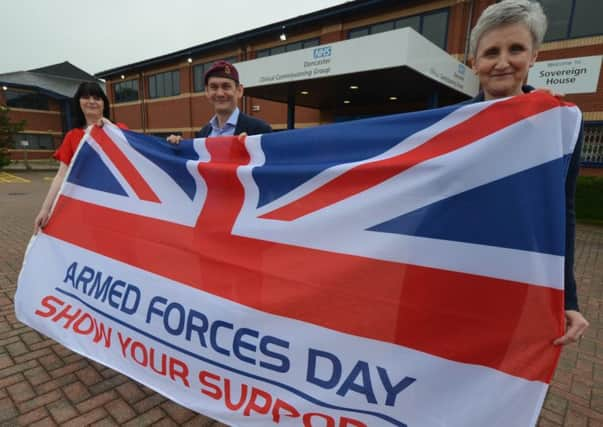My View, Dr David Crichton: Support is available for military veterans


The Army supported my medical education through university and I proudly served as a medical officer for the Parachute Regiment after qualifying as a doctor.
As chair of NHS Doncaster Clinical Commissioning Group, CCG, I also work with ex-service personnel who have moved into Civvy Street, including Rhona McCleery and Jayne Satterthwaite who have settled locally after serving in the Army and RAF respectively. Doncaster continues to be a popular recruiting ground for the forces and, in addition to serving personnel, has thousands of ex-services people living in the borough, many of whom have on-going health issues.
Advertisement
Hide AdAdvertisement
Hide AdIn planning and arranging Doncaster health services it’s important the CCG listens to all of society, including vulnerable people and hard to reach groups. We have developed a network of ‘health ambassadors’ to work with. They speak up for such groups as the lesbian, gay, bisexual and transgender community, gypsy and travellers, the homeless, those with a learning disability, sex workers, deaf people, refugees, cancer survivors and Black / Minority Ethnic groups.
In the run-up to armed Forces Day, I’m pleased to say our latest addition to the network is ex-soldier Andy Martin, local health ambassador for service veterans.
He served eight years with the Royal Anglian Regiment and in 1991 suffered a spine injury whilst parachuting. He managed to continue his service career until 1998 but, as a result of other injuries, he is now in a wheelchair.
For the last six years Andy has spent his time volunteering as a veterans’ welfare case worker, calling on his experiences since leaving the military and having a spinal operation 10 years ago.
Advertisement
Hide AdAdvertisement
Hide AdNationally, it’s estimated one in every 1,000 veterans is discharged due to mental health issues. Yet, for a variety of reasons, veterans do not come into contact with mental health services for, on average, 14 years. In Doncaster we have arrangements to help veterans with mental health issues, including fast-track referrals to services. The problems they have tend to be similar to the general population including adjustment disorders, depression, anxiety and alcohol issues.
The number of local ex-servicemen and women who have Post-Traumatic Stress Disorder, PTSD, is only slightly higher than the general population, which may surprise some people.
There is a website Talking Sense which gives information about help available, plus a self-referral veterans’ outreach service, which provides specialist interventions and assessment by ringing 01482 617594.